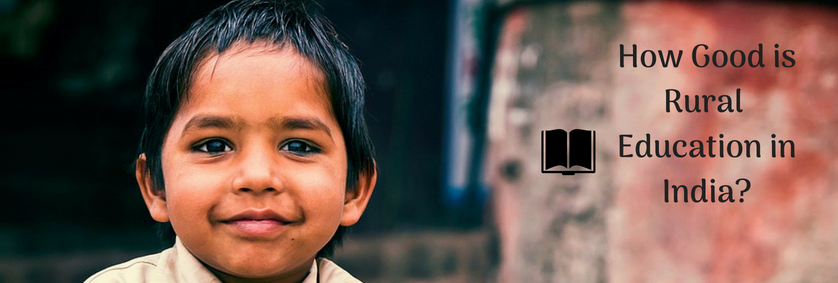Our Blog

20Jul 2018
Is Rural Education In India Really Witnessing A New Dawn?
An astounding change has happened over the span of a few decades. Young girls and boys in rural regions of India are far outperforming the education levels of their parents. A couple generations back, individuals in remote towns were to a great extent uneducated: there were not really any schools in remote zones. What's more, it is as yet regular to discover low instructive levels among town occupants who are 40 years of age and more established. Be that as it may, the early-morning picture of a tough however illiterate farmer hauling a plow blurs in front of the fresher reality of town kids strolling to schools in the hundreds. As late as 2001, just somewhat more than 25% of all 18-year-olds in villages were going to schools, the rest having dropped out before. By 2016, the percentage of 18-year-olds in schools and universities had gone up to 70%. There is a quickly rising pattern in India’s rural education sphere.
The way that bigger and bigger quantities of people in this age amass are selecting to stay in the instructive framework is cheering, accordingly. There are other idealistic discoveries. Rural girls have successfully removed the gap with rural boys, since, at age of 14 years, 94% young ladies and 95% of the guys are admitted in school; by age of 18 years, 68% of young ladies and 72% of guys are still in school, a complete change of proportions from a generation ago.
All of that seems to be quite amazing, but then again, the nature of training in village schools is bleak, by and large. 27% of the 14-year-olds and 21% of the 18-year-olds cannot read a class II course book in their provincial dialect, and over 40% in each age category couldn't read a straightforward sentence in English. Just 40% of 18-year-olds can take 10% off any given number. What's more, there are a lot of other disheartening statistics like these.
Raising the education quality in village schools is basic, and an dialogue nationwide is important for outlining the path ahead. The same old thing won't settle the issue. Privatising the administration framework is certifiably not a reasonable arrangement, either.
The basic issue is one of a broken administration framework. There are less prizes for being a decent teacher & lesser penalties for being an ineffective one. That is a direct result of broken designs which need to be replaced or repaired with more powerful and responsible governance frameworks.
SHARE THIS
0 Comment(s)
Leave a Comment
Latest Articles
-
How Do NGOs For the Physically Disabled Support Th......
07th Jun, 2024 -
How NGOs Help Elevate The Condition Of PWDs?
18th Mar, 2024 -
The Role Of Community-Based Rehabilitation Program......
08th Mar, 2024 -
How NGOs For Disabilities In India Champions For I......
16th Feb, 2024 -
The Role Of NGOs In Development Of Children With D......
05th Feb, 2024






